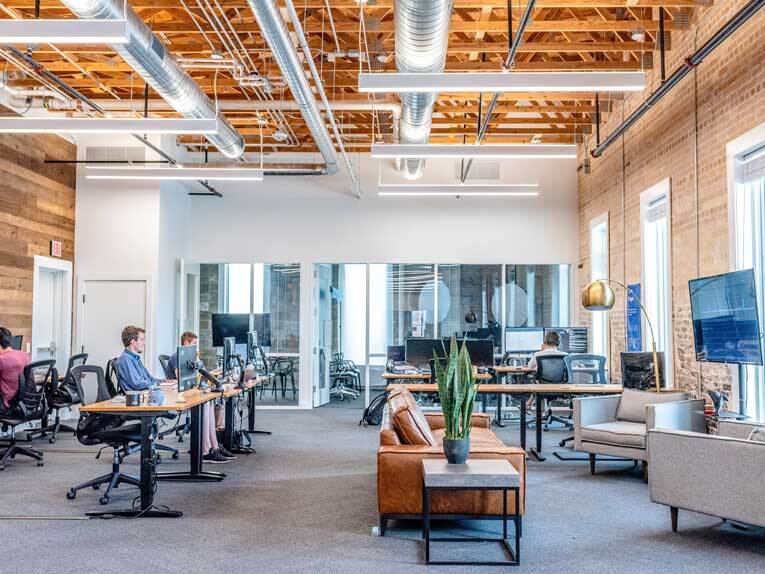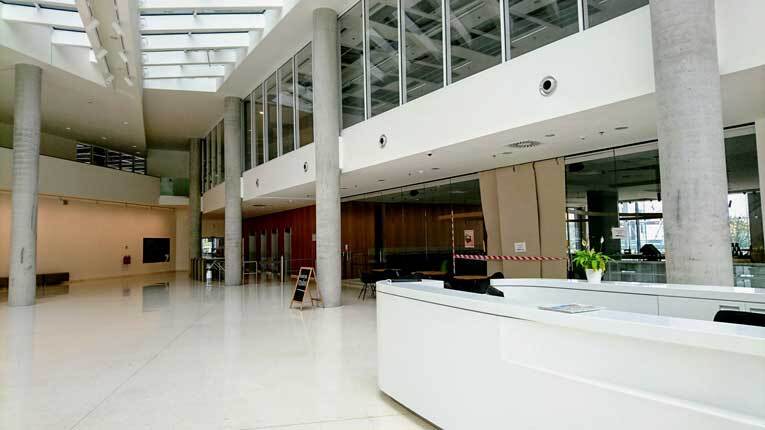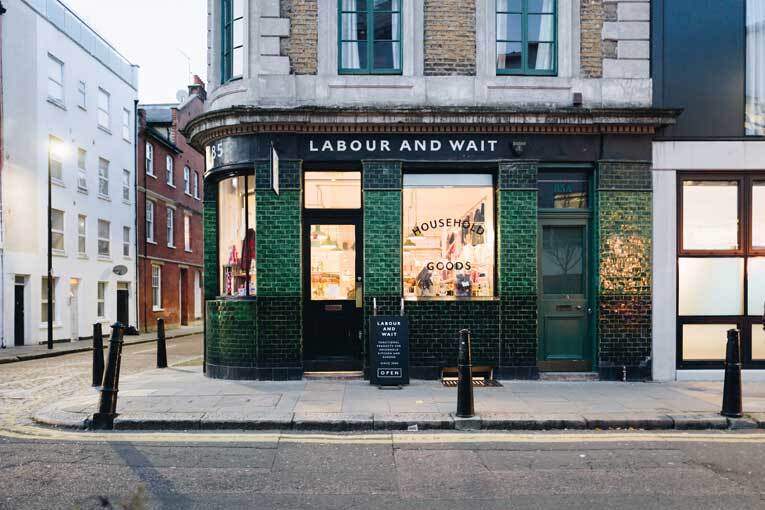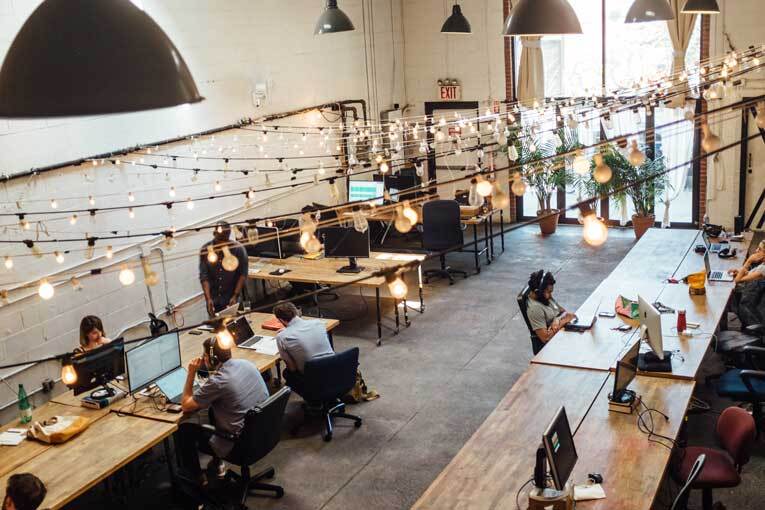How to choose the right business premises
19 Aug 2019

Where you base your business might be an afterthought, but it shouldn’t be.
Maybe you think that customers don’t care where your offices are. Maybe there’s not a lot of commercial property in your city so you’ve accepted that you’ll take what you can get.
The reality is your premises can actually dictate the success of your business.
From location to office size to the whole commercial property versus serviced office dilemma, there’s a lot to think about.
We’ve got you covered with a checklist of things to consider.
This article covers
Decide what you need from your premises
Start by thinking about your long-term business plan.
Maybe you’re a one-(wo)man band and want to scale to an agency over the next five years.
Maybe you’re a local business that’s looking to go global and hire remote workers from around the world.
Maybe you’ve got big plans to multiply your workforce with numerous different departments.
Will your plans affect your choice of premises?
It’s particularly important to consider this if you want to expand or alter your workspace at any point in the future.
A checklist of premises features
Appearance - what first impression do you want to give new employees or clients? Will a high-rise block work or do you want something a bit different?
Location - if footfall is important for your business, make sure your premises are in a busy part of town. Likewise, if you’re a blossoming tech company and there’s a “Silicon Valley” part of town, it might be a good idea to get a property there.
Light and noise - consider how much light you need and whether you need a quiet space to work or could cope with some noise from surrounding offices or outside.
Transport connections- are the premises close to bus stops or train stations? Will employees and clients be able to get to you easily if they don’t have a car?
Central heating and air conditioning - consider whether the premises you have your eye on has good central heating and air conditioning in place for any extreme weather conditions. Comfort is key, after all.
Cooking or food storage area - is there a place for your employees to make their lunch or store their food throughout the day?
Budget - this goes without saying, but you obviously want to choose a premise that doesn’t leave you out of pocket. Sometimes you’ll have to compromise on price, so have a top-end budget in mind before you start your hunt.
Size - how much space do you need? You’ll need enough room for your future hiring plans (recommendations suggest you have around 50-60 square foot per person), and you’ll need to consider whether you want a meeting room or any storage space for inventory.
Infrastructure - if you’re reliant on strong WiFi, you’ll need to find a space that has sufficient speeds for your needs and, if you use your mobile phone a lot, make sure the reception is good.
Leasing commercial space vs renting a serviced office
There are two options when it comes to hiring a space for your business.
Firstly, you can rent a room, floor, or the entire inside of a commercial property, or you can rent a space in a serviced office.
Both are perfectly valid options, and it completely depends on your needs as to which one is best for you and your business.
The details of leasing a commercial space
Leasing a commercial space tends to be a bigger commitment than renting a serviced office.
Usually, businesses will be required to sign a minimum one-year contract and pay three months’ rent upfront as well as a deposit to secure the space. You’ll also need to consider health and safety regulations and insurance you might need in order to rent a commercial space legally, and any licenses that are required.
On top of this, you’ll have to splash out on business rates, service charges, and potentially any upkeep of the office, like repairs and maintenance. The upside is you’ll have your very own space to work from that you can do pretty much whatever you want with.
The details of renting space in a serviced office
On the other hand, renting a space in a serviced office isn’t as big a commitment as leasing a commercial property, but it can be a great idea for small businesses or those who aren’t ready to take the plunge with a full-on commercial property.
Usually, serviced offices require businesses to sign a short-term (or month-to-month) contract, which means you’re not tied into a long lease. Rent is paid on a monthly basis, and bills are typically included in this sum (this includes items like electricity, water, broadband, cleaning, security, and any maintenance costs).
Shared facilities are usually part and package of the deal, which gives you access to meeting rooms, a kitchen area, and restrooms. They are also already furnished, so there’s no need to worry about buying furniture and decking out your new premises. And, as your team grows, you can often pay on a desk-by-desk basis so you don’t need to invest in more space all at once.
Serviced offices tend to be a little pricier than commercial leases because you get so much more flexibility.
Hot desking as an alternative
If you’re running things solo, a freelancer, or a small startup, you can always opt for hot desking in a coworking space.
As your business grows, you can migrate into a private office within the same building and still benefit from the serviced facilities. Well-known providers includeRegus and WeWork, both of which have offices in major UK cities.
Finding the right premises for your business
The breadth of the internet today means it’s incredibly easy to find premises for your business.
You can start by searching for commercial properties on a search engine or, if you’re feeling more traditional, walk into an agency to get a more personalised experience.
It’s worth going to visit as many premises that fit your criteria as you can so you are able to compare and contrast. This means your final decision will be fuelled by as much information as possible, allowing you to find the perfect property the first time round.
Finding the right premises is an important part of setting up or expanding a business, so don’t rush the process.
Instead, take the time to really consider your business’s needs and explore all the different options you have available in your area.


